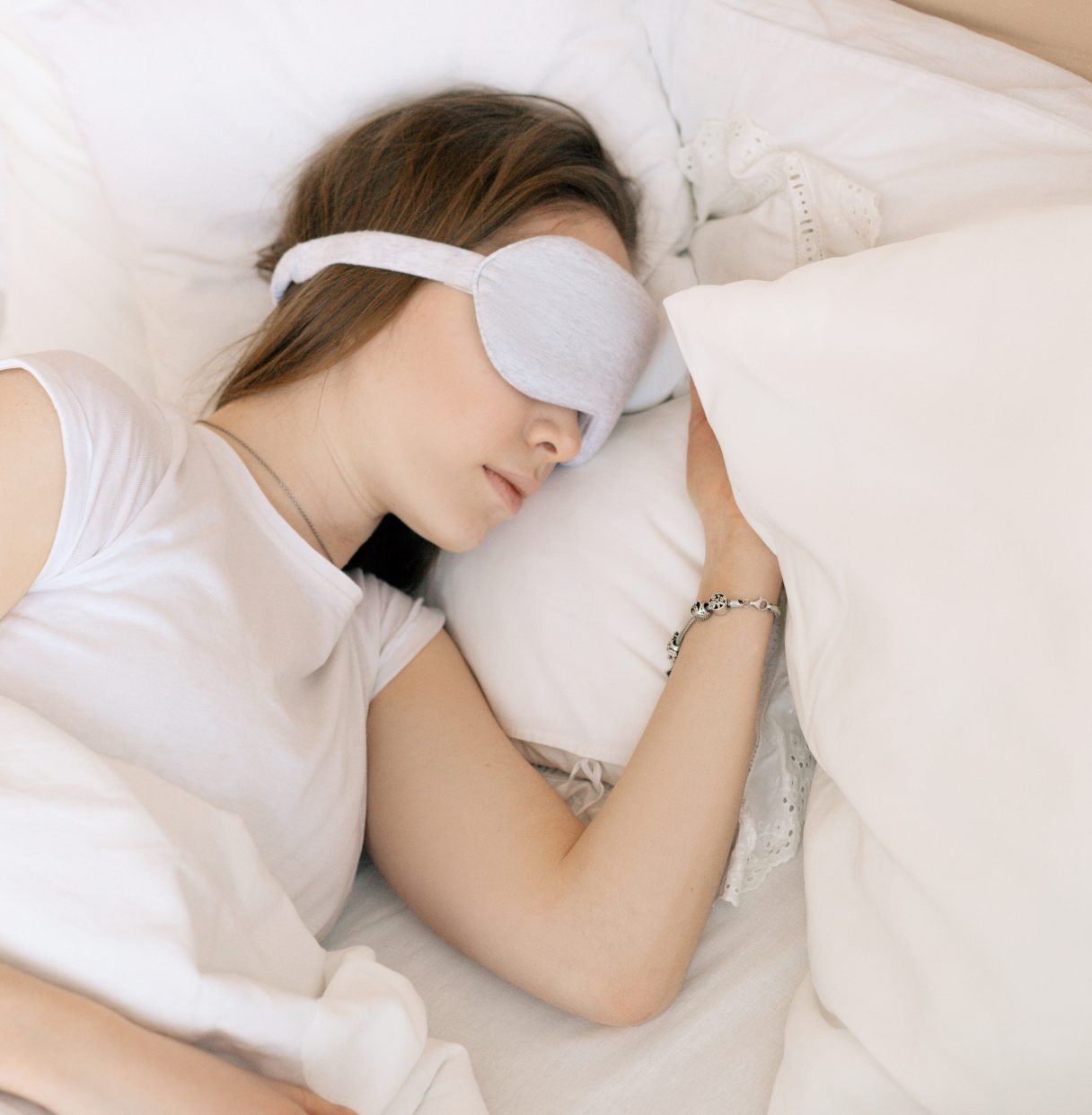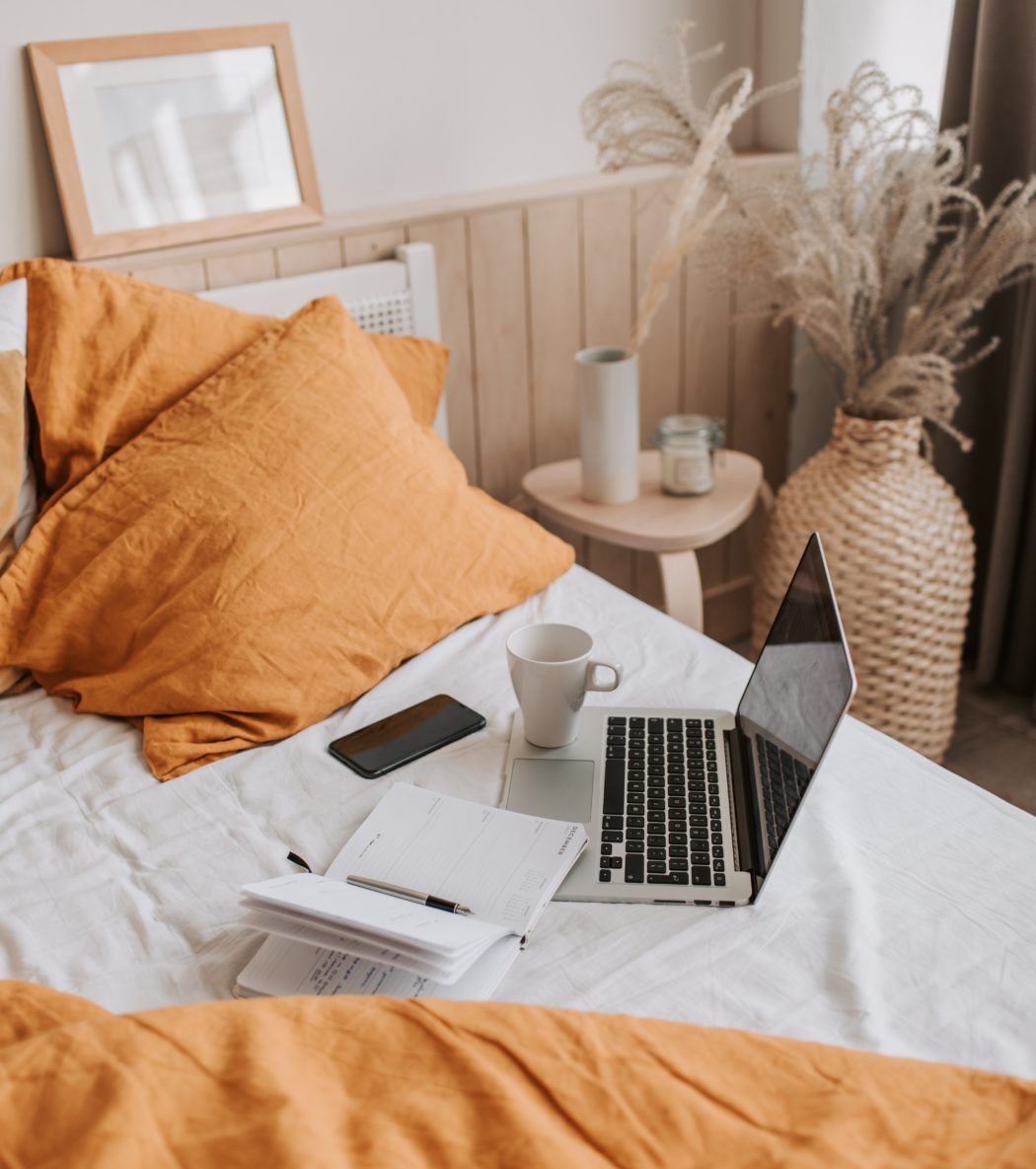Sleep is one of the pillars of health and well-being, but for many people it can be difficult to obtain. Sleep problems, such as insomnia, light sleep or restless sleep, can have a negative impact on quality of life, productivity and mental health. Fortunately, there are simple and effective tips to improve the quality and quantity of sleep you get each night.
Creating a comfortable sleeping environment
The environment in which you sleep can have a considerable impact on the quality of your sleep. That’s why we’ve put together a non-exhaustive list of our top tips for creating a good sleeping environment.
- Choose the right mattress, pillow and bedding: A mattress that is too soft or too hard can lead to pain and discomfort during the night, while an inappropriate pillow can lead to neck and shoulder tension. It is therefore important to choose bedding that is adapted to your body shape and preferences.
- Control the temperature of the room: A temperature that is too high or too low can disturb your sleep and wake you up sweating or shivering. The ideal temperature for sleeping is usually between 18°C and 20°C.
- Reduce noise and light: It is important to reduce outside noise and install blackout curtains or sleep masks to block out light.
- Create a relaxing atmosphere in the bedroom: The bedroom should be a place of rest and relaxation. It is therefore important to create a relaxing atmosphere by using soft colours, soothing scents and avoiding distractions such as television or computers.
Establish a regular sleep routine
Having a regular sleep routine can help your body regulate itself and fall asleep better at night. Here are some tips for establishing a regular sleep routine.
The body likes regularity, so you should favour similar sleeping times at the same bedtime and wake-up times. You must have this reflex on a daily basis without forgetting the weekends!
If you are adept of napping, try to limit it to 20-30 minutes maximum. Naps longer than that can disrupt your sleep rhythm and make it more difficult to fall asleep at night.
To optimise your sleep time, we advise you to stop using screens and stimulants at least one hour before your bedtime. This includes computer screens, mobile phone screens and television screens which can disturb your sleep because they emit blue light which suppresses the production of melatonin (the hormone that regulates sleep). Similarly, caffeine and nicotine are stimulants that prevent you from getting to sleep quickly. For this reason, it is necessary to stop consuming them at least one hour before your bedtime.
Following a regular and healthy sleep routine will help your body to rest better and adapt better to your daily routine.


Practice and adopt relaxation techniques before bedtime
Relaxation practices can help calm your mind and body, making it easier to fall asleep. If you don’t know which relaxation practices to use, don’t panic! We share with you our best practices that we use before bedtime.
- Taking a warm bath before bed can help relax the muscles and calm the mind.
- Practising meditation can help to reduce stress and anxiety that disrupt sleep. There are many free meditation apps and videos available online.
- Do breathing exercises to help calm your body and mind. Try breathing deeply for a few minutes before going to bed.
- Listening to soft, relaxing music before bed can help reduce stress and help you fall asleep.
By adopting these relaxation practices, you can relax more easily before bedtime and prepare yourself for a restful night’s sleep.
Consult a health professional if sleep problems persist
If you are suffering from persistent sleep problems despite applying these tips, it may be helpful to consult a health professional. Here are some reasons why you may need to consult a qualified health professional:
- You have difficulty falling or staying asleep at night.
- You wake up tired or drowsy during the day.
- You have breathing problems or snoring at night.
- You have pain or discomfort during the night that disrupts your sleep.
A medical professional will be able to help you determine the hidden cause of your sleep problems and find an appropriate treatment to improve the quality of your sleep. This may be a general practitioner, a pulmonologist, a sleep specialist or a clinical psychologist.
In short, if the tips mentioned above are not enough to improve your sleep, don’t hesitate to ask a professional for help.
There are many simple but effective tips to improve the quality of your sleep. By sticking to a regular sleep schedule, creating a peaceful sleep environment, adopting relaxation practices and seeking professional help if necessary, you can increase your chances of getting a good night’s sleep. We hope that the tips presented in this article will help you sleep better at night and allow you to enjoy a more fulfilling and restful life.





